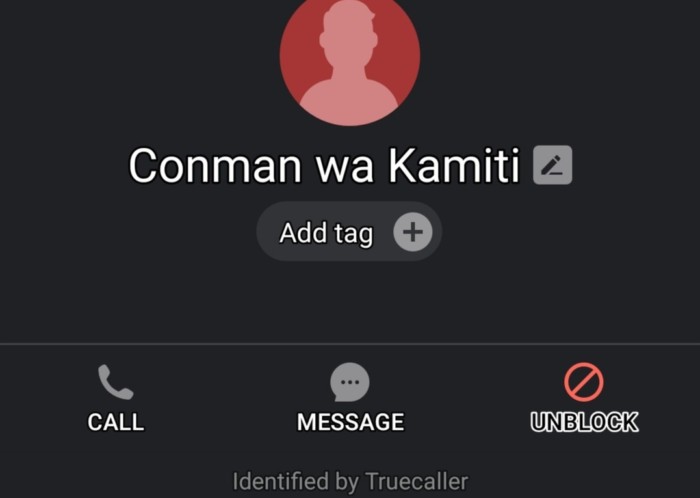
If you have ever gotten harassment or nuisance calls or SMS from inmates, you are not alone.
A research by caller identifier and blocker app company, Truecaller, shows that at least 9 out of 10 women in Kenya receive harassment and nuisance calls or texts.
The research shows that out of all those harassment calls, 47 per cent come from inmates while the rest are from unknown perpetrators.
“It is common that inmates in prisons have access to a phone and randomly call people and especially women to harass them,” reads the report.
The research, which was carried out in five countries globally i.e Kenya, Brazil, Colombia, Egypt and India, also shows that one in every five women in Kenya receive sexual or inappropriate calls and SMS, but only 11 per cent of those who receive such calls regard them as harassment.
“Despite being common for women to receive sexual or inappropriate calls and SMS, there is a concerningly low percentage of women who think these types of calls constitute harassment,” reads the report.
Mombasa, Nairobi, Kiambu and Nakuru women are the most affected by these calls and SMS in the country.
“Truecaller is on a quest to understand the effects of harassment that women face through their mobile phones. We have carried out quantitative research from 5 different countries to measure the size of the problem across the world,” said Truecaller.
Such calls evoked the emotion of anger in 53 percent of women, 42 per cent felt offended, 30% were irritated, 27 per cent felt troubled while 26 per cent felt some sense of fear.
With all these emotions being felt, only two out of 10 women in Kenya report such calls to the authorities, and for them to speak out, the harassment has to be severe.
So what actions did women take to deal with the issue?
49 per cent blocked the number, 40 per cent chose to ignore the calls/SMS, 32 per cent called the operator for help, 29 per cent told the harasser to stop while 6% chose to report the matter to the authorities.
The quantitative research conducted by Ipsos was combined with capturing the personal stories of women affected by phone and SMS harassment.
The survey was conducted between 22nd November,2019 and 24th February,2020.
“Local women have provided their harrowing stories for us, giving context and reality to the data,” said Truecaller.
Out of all women in the five countries, it emerged that Kenyan women are the least likely to share their phone numbers.












